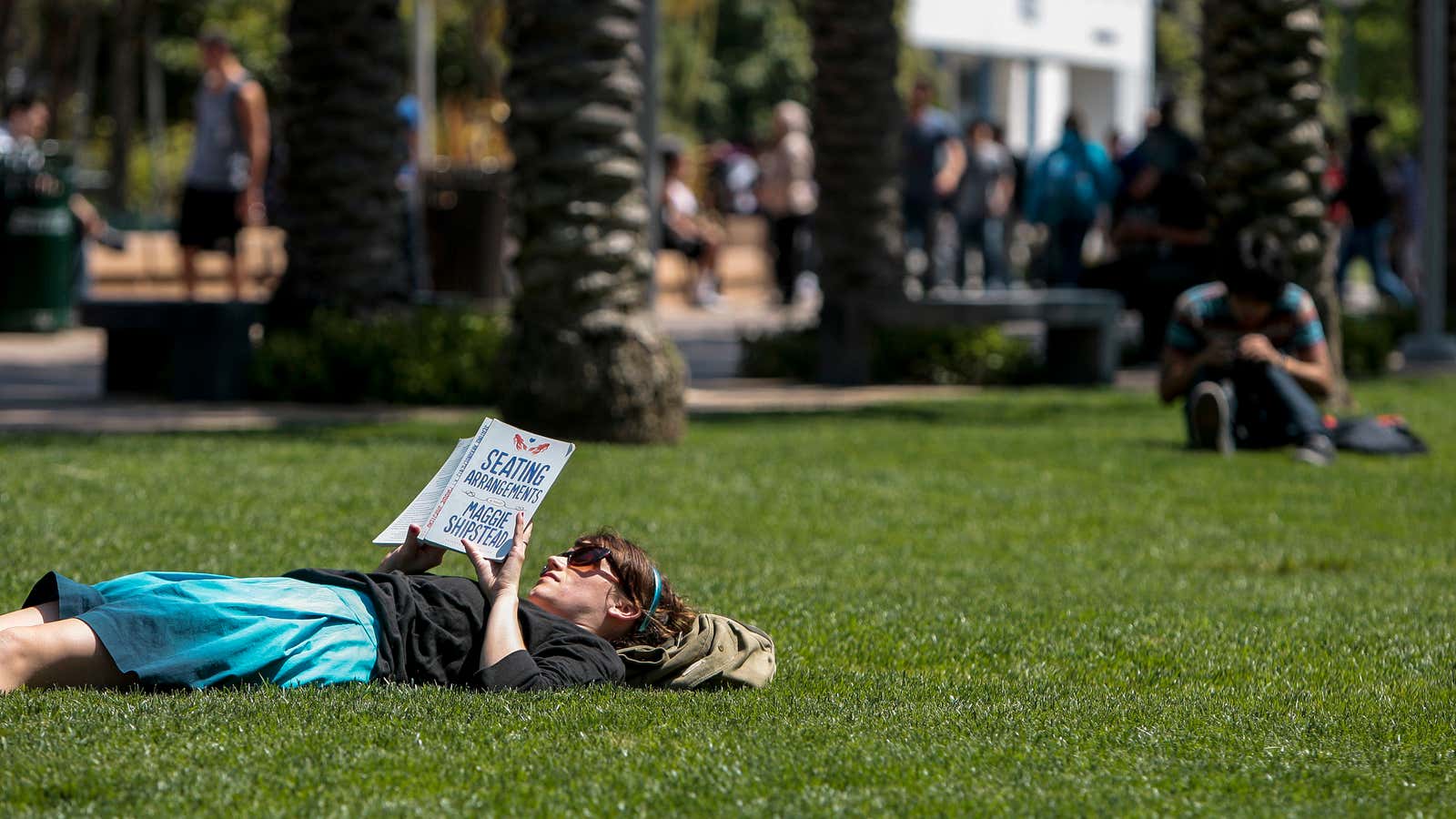This post has been corrected.
Hamilton College’s newest academic policy has nothing to do with grades or exams.
At the end of last semester, the small, selective liberal arts college in Clinton, New York, decided to mandate that all its majors—from literature to chemistry to economics—include some kind of coursework related to social diversity. Starting in the 2017-’18 school year, students in every department will take classes that discuss the ”structural and institutional hierarchies based on one or more of the social categories of race, class, gender, ethnicity, nationality, religion, sexuality, age, and abilities/disabilities.”
There’s a reason behind the unusual curriculum change: It came after a year of mounting tension on Hamilton’s campus, and at US colleges in general, centered on issues of race and inclusion. In the past year, universities across the country have faced a heap of student protests related to the Black Lives Matter movement, faculty diversity, and racial prejudice—as well as swirling questions about whether schools should continue to acknowledge histories rooted in slavery. Hamilton faculty members voted 80 to 19 to establish the new diversity course requirement.
Implementation, however, is another matter.
Critics of the new policy say it takes a concern for diversity too far; requiring diversity courses for all departments is ”standard leftist rhetoric used by faculty activists to indict American colleges and other institutions for falling short of the progressive utopia,” writes higher education policy expert Mary Grabar. A handful of Hamilton professors, too, are complaining, and there are more than a few students confused about what the policy will mean for their coursework.
Hamilton professors who support the policy say it will be easy for most majors to incorporate diversity related material; a biology course could explore the disproportionate effects of Hurricane Katrina on various communities, for instance.
But some of the college’s more quantitative departments—such as chemistry and astronomy—may have to get pretty creative.
Correction (July 27): A previous headline for this article stated that the classes must specifically teach racial diversity.




